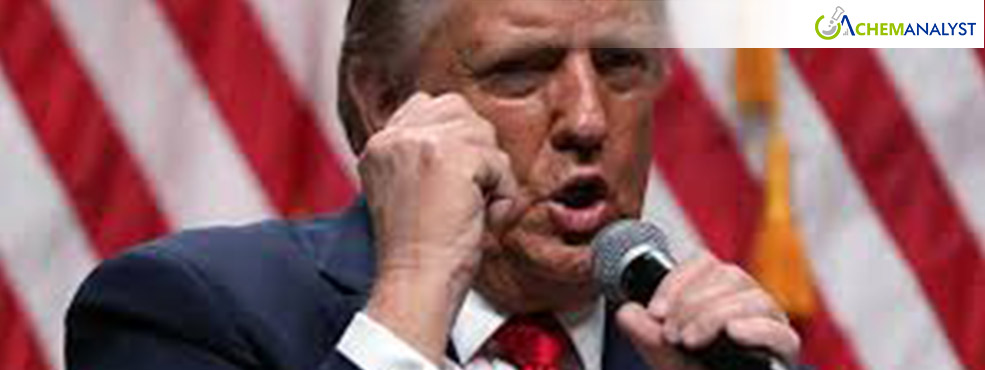Welcome To ChemAnalyst

Commodity markets were significantly impacted following Donald Trump’s victory in the 2024 US presidential election, with metals bearing the brunt of global price losses, while agricultural commodities market showed signs of recovery. Trump’s win, securing more than the 270 Electoral College votes, marks his return to the White House and sets the stage for another term shaped by protectionist policies, energy independence, and aggressive trade negotiations.
Metals Hit Hard, Gold and Copper Prices Decline
Precious metals took a significant hit following the election results, with copper shedding nearly 4%, marking its largest intraday loss in five months. The sell-off was driven by expectations that Trump’s administration could favor policies that promote economic growth at the cost of precious metals. Traders were anticipating a strengthening dollar and potential inflationary pressures.
Copper was particularly affected. The metal and a key component of the green energy transition, it lost its value amid concerns that Trump could roll back subsidies for electric vehicles and renewable energy projects. This would dampen demand for copper, which is critical for electric vehicle batteries and infrastructure.
Zinc, another industrial metal, also saw price declines. The galvanizing metal was hurt by fears that Trump’s promised policies to boost US manufacturing could lead to reduced demand for Chinese steel, with the potential to disrupt global supply chains. Zinc is heavily tied to steel production, particularly in China, which is the world’s largest producer of steel.
Agricultural Commodities Respond with Mixed Movements
Agricultural commodities saw some recovery following initial losses. Corn and wheat futures turned higher, while soybean prices pared earlier losses. It was due to a rally in soy oil futures. However, the agricultural sector remains highly sensitive to changes in trade policies, particularly with China. China is a major importer of US soybeans and Trump’s victory has now raised concerns about potential tariffs on agricultural goods, particularly soybeans. These measures could also face retaliatory measures from China, further disrupting trade.
A stronger US dollar, which rose sharply in response to Trump’s election, also adds to the challenge for US grain producers. A stronger dollar makes US agricultural exports more expensive for overseas buyers, potentially reducing demand for key crops like wheat and corn. However, since the peak export season for US soybeans is nearing its end, any impact from Chinese retaliatory measures may not be felt until next year.
On the positive side, Trump’s proposed tariff hikes on imports could reduce the availability of used cooking oil for biofuel producers, which might increase demand for domestically produced soy oil, a key ingredient in biodiesel production. This could be a boon for US soy producers in the long term.
Mining and Energy Sectors Poised for Growth
While commodities like metals and agricultural products are facing challenges, Trump’s win is seen as positive for the mining sectors. During his first term, Trump prioritized energy independence and deregulation, which helped boost domestic oil, gas, and coal production. His return to office could signal a renewed push for expanded mining and drilling, particularly for critical minerals like copper, uranium, and rare earth elements.
Trump has repeatedly emphasized the need to reduce their reliance on foreign minerals, especially from China, and could take action to streamline mining permits and ease environmental regulations. The mining sector, particularly copper and uranium, could see increased investment and activity under a Trump administration. In fact, copper, which is not currently on the US Critical Minerals List, could be added, unlocking funding and reform that could accelerate domestic production.
China's industrial metals and steel industries could face headwinds as Trump has pledged to impose blanket 60% tariffs on Chinese goods to boost US manufacturing.
We use cookies to deliver the best possible experience on our website. To learn more, visit our Privacy Policy. By continuing to use this site or by closing this box, you consent to our use of cookies. More info.
